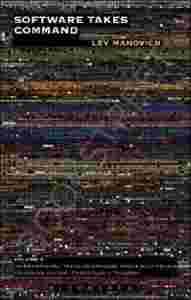|
Software has replaced a diverse array of physical,
mechanical, and electronic technologies used before 21st
century to create, store, distribute and interact with
cultural artifacts. It has become our interface to the
world, to others, to our memory and our imagination - a
universal language through which the world speaks, and a
universal engine on which the world runs. What
electricity and combustion engine were to the early 20th
century, software is to the early 21st century. Offering
the the first theoretical and historical account of
software for media authoring and its effects on the
practice and the very concept of 'media,' the author of
The Language of New Media (2001) develops his own
theory for this rapidly-growing, always-changing
field.
What was the thinking and motivations of
people who in the 1960 and 1970s created concepts and
practical techniques that underlie contemporary media
software such as Photoshop, Illustrator, Maya, Final Cut
and After Effects? How do their interfaces and tools
shape the visual aesthetics of contemporary media and
design? What happens to the idea of a 'medium' after
previously media-specific tools have been simulated and
extended in software? Is it still meaningful to talk
about different mediums at all? Lev Manovich answers
these questions and supports his theoretical arguments
by detailed analysis of key media applications such as
Photoshop and After Effects, popular web services such
as Google Earth, and the projects in motion graphics,
interactive environments, graphic design and
architecture. Software Takes Command is a must
for all practicing designers and media artists and
scholars concerned with contemporary media.
|
|

